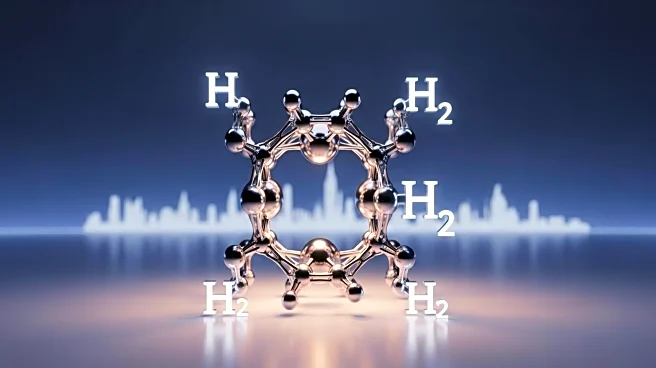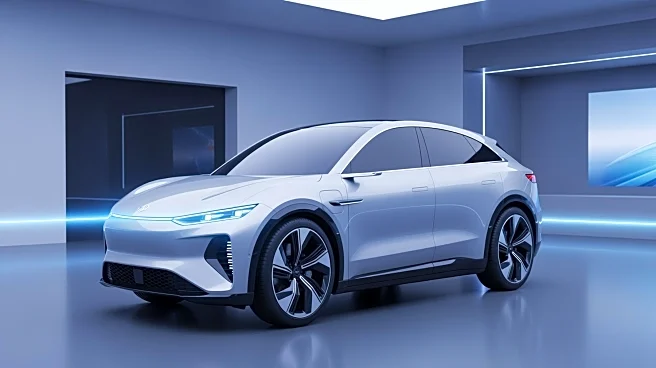What's Happening?
Hyundai Motor Group has faced criticism for its continued promotion of hydrogen as a key energy source, a stance highlighted during the Osaka Energy Ministerial Meetings. The company emphasized hydrogen's role in the future of clean energy, despite skepticism from industry experts who argue that hydrogen technology is outdated and not viable for widespread vehicle use. Hyundai's participation in the meetings, which included representatives from over 25 countries and international organizations, aimed to advocate for policy support to expand hydrogen ecosystems. However, critics argue that the focus on hydrogen is misplaced, given the advancements in electric vehicle technology.
Why It's Important?
Hyundai's commitment to hydrogen technology reflects broader debates within the energy sector about the most effective paths to achieving sustainable energy goals. The company's stance could influence policy decisions and investment strategies in the automotive and energy industries. If Hyundai's hydrogen strategy gains traction, it could lead to increased funding and research into hydrogen technologies, potentially diverting resources from electric vehicle development. Conversely, continued criticism may pressure Hyundai to shift its focus towards more widely accepted clean energy solutions, such as battery electric vehicles.
Beyond the Headlines
The debate over hydrogen versus electric vehicles highlights the challenges automakers face in balancing innovation with market demands and regulatory pressures. Hyundai's strategy may also reflect geopolitical considerations, as countries like Japan continue to support hydrogen initiatives. The outcome of this debate could shape the future landscape of the global automotive industry, influencing which technologies receive the most support and development.










